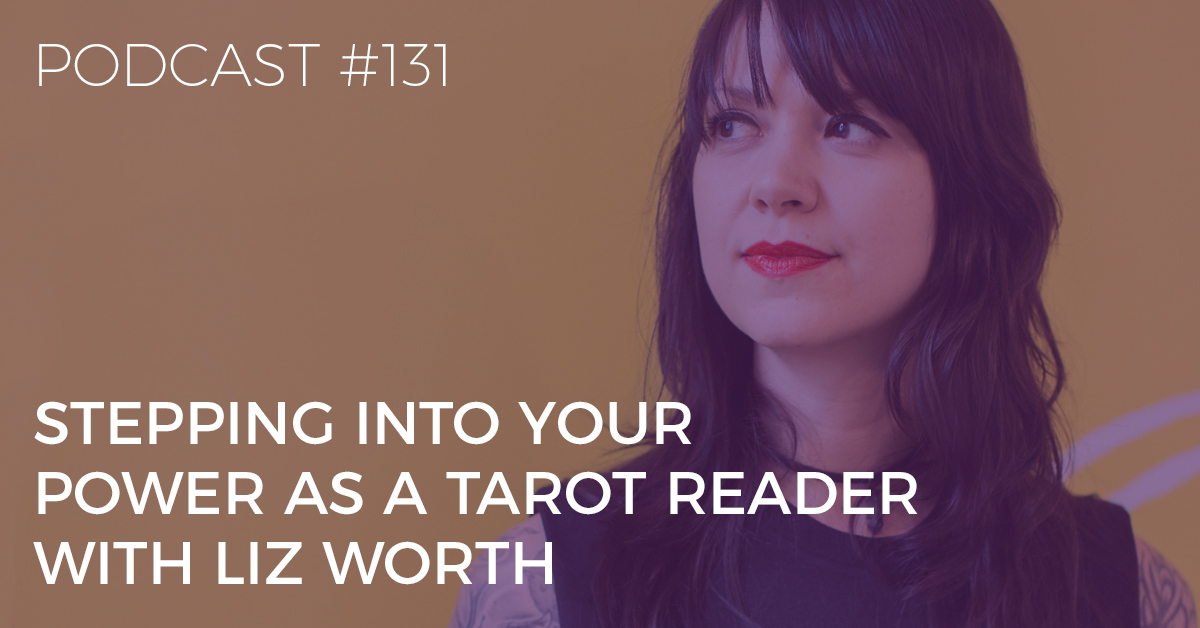
I’m happy to welcome back Liz Worth to the Biddy Tarot Podcast. Liz is an accomplished Tarot reader and teacher, who’s published books like “Beyond the Little White Book”. In this episode, she talks about how you can step into your power as a Tarot reader.
If you ever feel like you might be a bit of a ‘fake’, Liz and I will tell you how you can fully understand your value and true potential. All of my past and current students know that this is something about which I’m very passionate.
In this episode, you’ll learn about:
- How to release self-doubts
- How to step into your power as a Tarot reader
- How to embrace this power, while still holding a spot for your clients
ADDITIONAL RESOURCES
WELCOME
You’re listening to the Biddy Tarot Podcast, and this is Episode 131: Stepping into Your Power as a Tarot reader with Liz Worth.
Welcome to the Biddy Tarot Podcast, where you’ll learn how to connect more deeply with your intuition and live an empowered and enlightened life with the Tarot cards as your guide.
Listen as Brigit and her guests share their very best tips and strategies to help you read Tarot with confidence. And now, here’s your host, Brigit Esselmont.
INTRODUCTION
BRIGIT: Hello, and welcome back to the Biddy Tarot Podcast. I am super excited to welcome Liz Worth back to the podcast. Liz joined us a little while ago. She is not only a very talented Tarot reader and Teacher in the Toronto area, she’s also the author of a book called Beyond the Little White Book. Last time she joined us, she was talking all about how we can go beyond what’s in the Tarot card meanings book.
This time, I’ve welcomed Liz back to the show to talk about how to really step into your power as a Tarot reader. If you’re wondering, “What does that really mean, exactly?”, then, this episode is all about how it can move from that place of feeling like we might be a bit of a fake, or we’re not good enough as a Tarot reader, and actually stepping into a place where we fully understand our value and our worth and our true power as a Tarot reader.
This is something that I’m very passionate about. It’s something that I teach in my classes around getting very clear about who you are as a Tarot reader, and how do you want to bring that part of yourself through into your readings, so that when you do do a reading, you’re doing a reading from a place of real knowingness of your value? And also, as Liz will talk about in this episode, a place where you can hold space for your client who’s looking to you to provide insight and support them on their journey. So, let’s get straight into this interview. I want to welcome Liz Worth to the podcast.
STEPPING INTO YOUR POWER AS A TAROT READER WITH LIZ WORTH
BRIGIT: Hello, and welcome back to the Biddy Tarot Podcast, Liz! How are you doing tonight?
LIZ: I’m so good, thank you so much. How are you?
BRIGIT: I am very well. It is such a pleasure to have you back here again. I’m just trying to think if I’ve had anyone else come back yet. I don’t think so, so that’s special.
LIZ: Well, thank you. I’m really excited.
BRIGIT: Awesome! Liz, obviously you’ve been on our podcast, but some folks may not have listened to that episode. And of course, you’re writing on our blog quite a lot, but some folks might not have had the pleasure of reading those blog posts just yet. I’d love to have you share a little bit about you and the kind of work that you’re doing in this present moment.
LIZ: I’m a Tarot reader and I’m an astrologer. I am based in Toronto, but our online world helps me work with people all over, which is great. I’ve also written a book about Tarot called Going Beyond the Little White Book, which is a contemporary guide to Tarot. My background is in writing, so I do a lot of writing about Tarot and astrology. I had gone to school for journalism, and I thought that that was really going to be my one and only career path, but I started working with Tarot, just for myself and my own person practice and exploration, and it just totally transformed my life. From there, I started to also get really into astrology. Years went by and one day I woke up and I thought, “I think this is the thing I’m supposed to be doing.” So, that’s how I got here.
BRIGIT: Yes, neat! Obviously, you’re doing awesome things now. You’re not only writing about Tarot, you’re teaching about Tarot, and you’ve got your own flourishing business as well. I just want to check in and see, have you always felt super confident with your Tarot readings, or have you been through that phase I think many of us have, where we feel a little bit unsure about, “Are we in the right place? Are we doing the right things?” and so on?
LIZ: Oh! Absolutely, yes. I think for me, and this may be similar to other people’s experiences as well, but I found that for me throughout my journey with Tarot, it’s been an ebb and a flow of times of confidence and times of total insecurity.
When I was really early with Tarot, at first, I started like many people, I was really excited. It’s like anything else where you find a new skill or you find a new hobby and you feel very inspired by it and drawn to it. Then we hit learning curves, and they become sometimes little speed bumps, or sometimes they’re like huge mountains we have to climb, and they shake our confidence. They make us question whether this is actually a worthwhile pursuit, or whether we can get past these learning curves the way we want to.
I went through many of those ups and downs over time as well. Then of course, there are other learning curves when you start reading for other people, especially reading for people who you don’t know and you start branching out.
I think every time we step outside of our comfort zone, with anything, whether it’s with Tarot or any other path, or even a new relationship for example, or a different stage within a relationship, all aspects of our lives, we can suddenly begin to question ourselves in that way. So, yes, I think part of that is a sign of growth a lot of the time, but it doesn’t always feel like it’s growth. It can actually feel more like failure.
BRIGIT: I know something that a lot of… I don’t want to say Tarot beginners because I think this applies to almost all the Tarot readers, but this feeling of this imposter syndrome and feeling like you’re a fake or you’re trying to be something that you’re not, maybe you’re not feeling psychic enough, whatever it might be. Tell me a little bit about your understanding of the imposter syndrome and maybe even how it’s played out in your life.
LIZ: I think that it can play out in different ways. For me, one of the ways, especially when I started to take steps to go into a more professional arena with my own readings, was I questioned, “Is this really the place that I’m supposed to be? Can I take up space here?” That was something that I had to navigate for myself. I would see other people who were doing similar things and making similar decisions. That was definitely a way that the imposter simplex… I just made a new word, but that makes sense, ‘syndrome’ and ‘complex’ combined – that was one way that it really manifested for me.
Again, I can go back to this idea of sometimes we have to grow through certain things. If we’re trying to go professional with Tarot and we’re coming off as a totally different career path, or it’s not something we really expected to find ourselves doing – it’s almost as if we have to shift our identities just to get into that headspace and really accept that, “Yes, this is the next phase in my life.” Even if logically we can tell ourselves that this is what we want to do, or this is what we think makes sense for us, that there can be this whole other grey area where part of our hearts or the back of our minds are saying, “I don’t know yet.” So, there can be this hesitation sometimes, that comes up with that.
BRIGIT: Yes, I’m going back in my mind, particularly when I first started reading Tarot. I guess my Imposter syndrome was, just feeling so young. I was 18or 19 years old, reading Tarot for others, and I thought, “Oh man! I hope no one finds out how young I am, because maybe they’re not going to think I have enough life experience, and who am I to be giving advice? I’ve only been studying the cards for a couple of years.” I think that, for me personally, that was why I started online, because I could almost hide behind my computer screen.
What about for yourself, you’re young and all the good stuff, how did that play out for you as a younger reader as well?
LIZ: It’s interesting. I’m OK with putting my age out there. I was born in 1982. I’ve noticed that I can sometimes be a younger reader within the Tarot community, but I know that there are also many people who are 10 years younger than me, or beyond, who are also getting into Tarot or starting their own businesses at this point. I think that it’s great and we have to remember that Tarot needs to stay alive. So, we need this constant injection of new energy and new perspectives.
There’s a difference between being inexperienced and being younger. What I mean by that is, you can come into Tarot at any age and perhaps try to do things prematurely. Sometimes there’s a lot of pressure, especially within our society, to figure out how we’re going to make money, or what is our ‘thing’ going to be, what is our calling in life?
Sometimes people maybe feel very drawn to Tarot and they think, “OK, this is going to be my thing.” They rush the process of figuring out how to go pro, or how to build a business around it without really knowing how to read yet. There’s always a danger in making sure that we’re not entering into things unprepared. Being unprepared is different from just feeling uncertain about our own skills or abilities. It’s important to remember, again, no matter what age we’re at, we all have different experiences that we’ve had in life. We’re all walking different paths.
Throughout my life I’ve always met people who are all very different. Sometimes I’ve met people who are much older than me, but they don’t necessarily know what it’s like to walk in my shoes or someone else’s shoes. Sometimes I’ve met people who are much younger than I am, and they’ve been through so much and are so wise.
We have to remember that we can’t always judge people just based off of how many years they’ve spent on this earth, and we can’t dismiss each other for that. We don’t really know what anyone else has been through, or what they understand, or how much wisdom they might hold.
There’s also their own ability to connect with Tarot. Tarot can make us very compassionate and objective, and can help us connect with each other in ways that we might not be able to without that tool to help bridge certain gaps. We also can’t lose sight that Tarot can be a very powerful way to continue to find unity with each other, no matter what age you’re at or what experiences we’ve had in life.
BRIGIT: Yes, absolutely! I think that’s really important. Something else that you were touching on is the idea of inexperience. It brought up in my mind a question around how do we know when it’s imposter syndrome versus, “I shouldn’t be here.” You might be thinking, “Oh! I’m going to fight my imposter syndrome. I know how to read half the deck, so surely it’s time for me to go out there and sell my Tarot readings.” How do we know the difference between ‘imposter’ and “Hang on, pop the breaks on for now?”
LIZ: When I’m teaching Tarot to people, and they have questions around when… Actually, no one ever asks me when they should start charging for Tarot. I always tell them that’s the first question they should ask if they want to go pro, “When should you start charging?” versus other questions like, “How much should I charge?”
These are also very different things to look at, but I think one thing that’s important is you should feel very confident in the deck, the whole deck, and be able to do readings that feel fluid, that feel natural, and be able to do readings for people who you don’t know anything about. Those are some things that, for me, can be good foundations to start with. That helps us go from imposter complex into feeling like we’re beginning to step into our power more as Tarot readers. That way, we have things that we can fall back on if our insecurities rise up.
If we sit down in front of someone who we’re about to read for and maybe we’re worried about going totally blank in the reading, or we’re questioning whether we’re going to be able to connect with this person or deliver a reading that will resonate with them, we can go back in and we can say, “You know what, I know this deck inside and out. I know that somewhere within me I have the knowledge to do this. I am capable of doing this, I’ve done this before.” We start to have things that we can fall back on in terms of our own skills and our own talents.
Without that, you’re in a position where you are operating from a foundation that may not be as firm. You’re putting yourself in a position to almost feel your way through the reading, not in an intuitive way, the way we want to be when we’re reading Tarot, but more like we’re winging it. I think that we have to be careful that we’re not setting ourselves up to become vulnerable in a situation that we’re not really ready for.
BRIGIT: Yes, absolutely, it seems like it is quite a fine line between the feelings of that imposter complex versus when we’re actually really not ready for something. As with all things, with Tarot and just life in general, I think when we’re more in alignment and in touch with our intuition and our truer self, that’s when we can get that better understanding of, “Is this just my fear stuff coming up, or is this really an area that is probably out of my depth at this point?”
Liz, I’m curious for you, from having experienced a little bit of that imposter syndrome for yourself, what was it that made the difference? What helped you shift out of that and, as you say, step into your power as a Tarot reader?
LIZ: This answer might be a little bit sideways, but I’m going to go with it anyway. One thing that I had to get really… I don’t know if strict is the right word, but I got very disciplined with myself on, was noticing when I allowed other people to throw me off. This would come up in situations where maybe someone that was a client they might sit down and say things that I might not feel were appropriate, such as, “I’m not going to tell you what my questions are because I want you to figure them out.”
All these opportunities where I realized I had to use my voice more, assert myself more, and really be the one who held the power and the presence in the room, rather than let someone else call the shots. I also started to pay attention to where I did things like that within my own personal life as well, where I let maybe my partner, my friends or my family say things that I really didn’t want to let slide, or that I felt I couldn’t let go because it may have led me to make a decision or compromise on something that I really felt I couldn’t back away from.
I just started to pay attention to opportunities where I could step into a different level of confidence, and different ways where I could vocalize what it was that I had to do that day or things that may support my own intentions for my own work or just my own day-to-day life.
BRIGIT: What did you discover, particularly around your boundaries as a reader? What came through for you? Where did you realize, “OK, I’ve been doing something that isn’t really in alignment with my highest good,” or “I’ve been allowing clients to push me on an emergency reading?” Where did you find your boundaries were being stretched inappropriately?
LIZ: I don’t know that is was so much coming up in things like emergency readings or anything like that, but I started to draw more boundaries around questions that felt like they might challenge my own philosophy. I started to become less afraid to tell people that I might not subscribe to certain spiritual paths or certain beliefs, or even just certain capabilities that other people may have.
For example, I don’t like to use Tarot to look at things that may be five years down the road. Sometimes people will ask questions like that. They’ll say, “I want to look into the next two, three, four years…” and that’s really outside of my philosophy of what Tarot can do, or how I like to use it.
Over time I realized, if this is really the work that I want to do, I have to be the one who lets people know how it is when they work with me, what they can expect, but also to explain to them why do I believe this, and remember that when people are seeking out a reading they expect you to hold that space for them, they expect you to bring your own expertise into it and they’re ready to trust you a lot of the time. It’s their session and you want to make sure that they get something out of it, but you can’t forget that they want to work with you and they’re coming to you because they already see you as an authority within your work and within the tools that you’re using.
BRIGIT: Yes, it’s interesting. Its bringing up again some memories for me. Early on when people would ask me various specific questions like, “When will I meet my husband?”, I initially thought, “Oh gosh! I’ve got to be a really good Tarot reader. I’ve got to be able to predict a date. I’ve got to be able to see into the future, got to get this stuff 100% correct.” I’d go into this flurry of activity trying to predict timing in the cards.
I knew ultimately, within myself, I just don’t believe that’s how the world works. I don’t think we work on really specific timing. Sometimes we do, but a lot of the time, no. It’s about our choices. I often found that whenever I gave in or adjusted my style to suit what I thought the client wanted of me, I’d feel disappointed with the reading, and then the client would feel disappointed as well.
The FREE 5-Day
Tarot Reading Challenge
Become a More Confident,
Intuitive Tarot Reader
Join Brigit Esselmont
for an EXCLUSIVE Live Event
April 28th - May 2nd
It’s an interesting point that you make that they’re coming to you because they honor you, they value you, and I think it’s your role as a reader to really have a clear understanding of the value that you do offer in a session, and to stand by that and to not be afraid to say, “You know what? I get that you want to know when this stuff’s going to happen. I can help you in so many other ways that are going to be so much more powerful than just telling you when you’re going to meet this guy. I can show you exactly the steps that you can take and the signs to look out for and so on.”
It really does start within you when you have that understanding of the value that you contribute to a session versus just almost sort of rocking in the ocean of your client saying, “I want this!” “OK, I’ll do that.” “No! I want this!” “OK.” and you’re completely lost in terms of who you really are.
I’m curious for you, what other things have you discovered as you’ve really stepped into your power as a reader?
LIZ: What you’re touching on is really important. Those are some of the things that I started to really pay attention to as well. Sometimes when we are building businesses that are based around this kind of work, or based around things that are very intuitive or very creative and intangible and esoteric, we worry, “How do I find clients?” We start to get focused on buzzwords and marketing and things like that.
Sometimes we might really want to think about something… When we define power, we might think about it as something, it could almost sound like we’re making claims that we may not always be able to stand behind. Like, to say that Tarot can transform you, and I do think that Tarot can transform some people, but not every Tarot reading is going to be transformative.
We always have to be careful as well that we are not making promises that we can’t necessarily keep. When we’re very open and honest and upfront, first with ourselves, that’s a big step and it’s an important part of the process of feeling more powerful.
Again, power, it’s not about being dominant; it’s not about always taking control. We can quietly be in control. I think it’s more about finding a place where we feel resilient, and we feel like even if we do get thrown by something unexpected within our reading, that we’re still going to be able to find our centre and stay grounded through that, and remember that it’s still ultimately up to us to guide the process and stay in charge of the session, but we’re not taking charge of the person’s life who we’re reading for.
I also started to pay attention to this idea of energy. That comes up a lot with readings. Because I used to read out of my living room a lot, people would ask me, “Aren’t you worried?” or “Don’t you ever find that people come in and leave all this energy in your space?” and I said, “Well no, because I’m not taking that on from anyone.”
I’m not opening myself up and taking on other people’s stuff. I am just holding the session. We’re getting into the cards, but the readings have a start time and an end time and that’s it. I’m not processing anything on anyone’s path. When we’re really clear on those energetic boundaries as well, that’s really important. We’re not putting ourselves in a position where things are starting to get blurred or we’re starting to feel like our lines are getting crossed with the people that we’re working with in any way.
We’re also keeping them empowered at the same time. It gives us a better opportunity to stay very reflective in our readings, rather than taking on more than we may need to and more than might be necessary.
BRIGIT: Yes, it’s certainly something I noticed amongst Tarot students who were starting to read for others but in their early phases. Often what people say is, “OK, I’ve just done three readings, and I’m exhausted. I just feel like all my energy has been drained.”
For me, that’s a sign of the need to set those energetic boundaries. I can see how easy it is to get so emotionally involved and emotionally invested when you are reading for someone, which is beautiful. It’s great that you’re doing that in the reading. Good spiritual hygiene is that you have ways of disconnecting after that time, or acknowledging that the energy exchange happens in that reading and that’s it, you can turn the tap off.
Otherwise, if you’re not doing that then you can end up feeling exhausted, drained, resentful, even to the point of not being able to continue as a Tarot reader, which is really sad. We’ve talked a little bit about setting those energetic boundaries, we’ve also talked about boundaries around the questions that we take and how we respond to those questions in a Tarot reading. Is there anything else that’s really important, in terms of stepping into your power as a Tarot reader?
LIZ: One thing I think is important is, and this is something that I use as part of my practice, is setting intentions for the kind of work that we want to do. This is something that you can do on a daily basis and it can be very simple. Sometimes I set the intention at the start of the day to say, “I’m setting the intention to understand my power, or to continue to move towards it.” I don’t know that we ever really reach an end point in anything either, where we may find that we are in the zone, right now could be totally different a year from now, 10 years from now, don’t know.
So, setting intentions that continue to allow us to explore what our power may be, what kind of presence we can bring to a reading, can be really important. And again, to go back to this idea that sometimes the things that we might hope are outcomes for a reading or for our clients, are not necessarily reflective of the presence and the power that we are bringing to a session.
What you may be selling within your own service, there has to be some boundary between what the client may experience versus what you know, your own sense of understanding is, your compassion is, your mastery over your tools and your abilities as a reader. Those things are the things that stay with you. They can grow, they can change and they can deepen, but the outcomes that someone takes away from a reading, that stuff is out of your control. We all have to remember not to tie up our self-worth with the things that we hope someone is gaining from a reading, because we don’t always know.
BRIGIT: Absolutely! I was having this conversation with a couple of people just recently. Someone had done a reading for someone, it was their second or their third reading, so they were having a slight panic attack while their doing the reading. They were doing the reading and client was like, “Meh! No, don’t know, don’t really get it.”
She had just done this Tarot reading. She’s like, “Oh! OK.” and inside she’s thinking, “Oh my gosh! I’ve done the worst Tarot reading ever. I’ll never do this stuff again.”
Then she said, “You know what? I’m feeling led to help you with a Reiki session. Could I do some Reiki with you?”
The lady was like, “OK, great.”
She jumps on the table, lies down and the reader, or practitioner, starts doing the Reiki. All of a sudden this woman started bursting out into tears, and she’s like, “Oh! What’s happened? How can I help you?”
It was the case that the Tarot reading itself had unlocked something within her that she had stored for years and years, and then the Reiki just helped bring it out. That was her safe place to express what had happened. Had the reader stopped the reading at that point and the client had walked away, the reader would have thought, “Oh gosh! I’ve just done this terrible reading.”
What had actually happened is she had created or planted a seed of inspiration, of new thought and a breakthrough moment for this woman. I really think it hit the nail on the head in terms of, we can’t attribute our self-worth to what happens at the end of that reading because who knows what happens after that reading.
It could be straight away they get a response, like, “Oh! That was really helpful.” It might take three weeks until they go, “Oh! OK, now I get it.” Or even in the case of one of my clients, nine years later he wrote to me and said, “Oh gosh! I told you, you were completely wrong and now it’s all just happened. I’m really sorry.”
I guess it’s another boundary thing, knowing what’s your responsibility in terms of the transformation that’s created or the response that comes from the reading. It’s not really your responsibility. You deliver the information and then it’s up to the client to use that information however they need to.
LIZ: Totally! That’s why it’s so important to feel confident in your skills first as well. Going back to our conversation, being prepared and really feeling like you can trust your own abilities with the cards, is so helpful for that. If we go in knowing that we’re not totally sure yet, that we know what we’re doing, and then we do a reading and the person’s like, “Yeah, it doesn’t really resonate with me,” it’s not a good way to build your foundation or feel powerful with what you’re doing.
As long as we give ourselves that opportunity to come back and say, “You know what, even if this client didn’t connect with me or this reading, I know that tomorrow when I pick up my deck again, I can go back to this with confidence because I know what I’m doing.”
That’s a really important thing to be able to say to yourself, “I know what I’m doing.” That’s where I think so much of this starts. It’s true, I’ve had the same thing with clients where some people, I do a reading for them and they might not give me much of a reaction.
I always check in with people as I’m doing a reading and I say, “Does this make sense for you?” or “Do you know what I’m talking about when I say this?”
I don’t always have the context for what they may be bringing or why a certain card is coming up. I just have to go on what I’m seeing in a reading as well. Sometimes people will leave, and I’ll think, “Oh! I don’t know if that was helpful for them.” Then, they’ll come back to me a few months later for another reading, and they’ll come back again, maybe a year later.
You don’t always get feedback from people. Everyone has different communication styles and people may not tell you how you’ve helped them. They may not tell you what resonated with them because they might be shy. They just might be that kind of person who doesn’t share that much. You don’t know. Again, it’s really important not to be looking to your clients to validate you, you have to be able to validate yourself.
BRIGIT: I think that’s probably the real heart of this concept of owning your power, is knowing it’s not an external validation process. It’s all coming from within and being able to be really confident in, again, the value that you offer and what you contribute during a Tarot reading session. It’s funny, I was also just remembering, a very long time ago when I had some clients where I’d be like, “OK, that didn’t really resonate with me.” from the reading, and then I’d be like, “Oh! Well, let me draw you another card. Maybe I got it all wrong, I’ll just do the reading again.”
I know that this is something that a lot of people do. They think, “Oh! I haven’t impressed this person, I’ve got to adjust things, I’ve got to be something else.” and not really coming back into that centre, the core, the true essence of who you really are and all of the goodness that you offer in a session.
To wrap things up, what would be your overall piece of advice for folks who really want to step into that place of power who might be experiencing a bit of the imposter syndrome, and who are ready to say ‘yes’ to who they really are as a Tarot reader?
LIZ: For people who have been at it for a while, who maybe already have a practice in place, or who’ve been practicing Tarot on their own for a while that haven’t really taken that next step, if they’re thinking of going professional, but they know that they know what they’re doing at this point, first, you can actually start with setting those intentions.
Set some intentions to maybe promise yourself to explore this, to commit to Tarot, to build your practice, and to allow your presence to come forward. That can be a really nice way to get going if you feel like, again, you need that foundation but you have the skills in place already.
Also, to remember these things are ebbs and flows, and there are a lot of very accomplished people in this world who have talked about struggling with the imposter complex. It’s not unique to Tarot; you’re in good company. If it’s affecting you, to keep that in mind as well, and to remember whatever you do it’s going to come down to you deciding to be the one to hold that space and to maintain your own sense of presence, whatever that looks like for you.
For people who are still starting out, who are new to Tarot or who aren’t sure where they’re at with it yet, keep practicing. Keep practicing and keep learning because knowledge is very powerful. Knowledge will get you far. The more experience you have and the more you can tell yourself, “Yes, I know what I’m doing.” the stronger you will become down the road, and you will always have that knowledge to fall back on no matter what.
BRIGIT: I think the practice element is so incredibly important in getting that experience. Even if you do dumb things, like maybe you did offer to do a second reading because you thought maybe the first one was wrong, have that experience and then check in, “How did that feel? Did that feel good, or not so good?”
If it didn’t feel great, then you know, “OK, I’m not going to do that again.” So, having all these experiences, whether they are positive or so-called negative, I think they’re all huge learning experiences and really shape who you are as a reader and how you can stand in that place of being who you really are. That’s awesome advice. Thank you, Liz! Where can people find out more about you?
LIZ: They can go to my website, LizWorth.com. Pretty much everything they need to know is right there.
BRIGIT: Awesome! Liz, we’re going to have you inside of the community as well, teaching one of our master classes on Stepping into Your Power. That’s going to be in June of this year, in the community. If you want to find out more about that class, go to BiddyTarot.com/Community and you can be a part of that. You might also be a member, which will be great because you’ll see Liz on the inside. Thank you so much again, Liz, really appreciate today, and to such a relevant topic. Thank you so much for sharing.
LIZ: Oh! Thank you, anytime.
WRAP-UP
BRIGIT: So, there you have it. I hope you enjoyed that conversation with Liz as much as I did, and perhaps it started to spark a little bit of inspirational thought about who you are as a Tarot reader, and how you really want to bring that part of yourself into your Tarot readings.
Perhaps you’ve started to notice parts of your reading practice that don’t really feel that comfortable for you. Maybe there are parts that you want to be a little bit firmer. Maybe you want to set your intentions and set your boundaries to be a little bit firmer, so that you can truly operate from your place of power and you can give your absolute best to your Tarot readings.
Now, as I said, Liz is teaching inside of the Biddy Tarot community this month, in June. If you’re not a member already, then go to BiddyTarot.com/Community, and you can sign up for the waitlist. We’ll let you know as soon as those doors open. As soon as you’re inside, you can access the master class that Liz is teaching. All right, that is it for now.
I hope you have a fabulous week ahead, and I look forward to connecting again with you very soon. Bye for now.

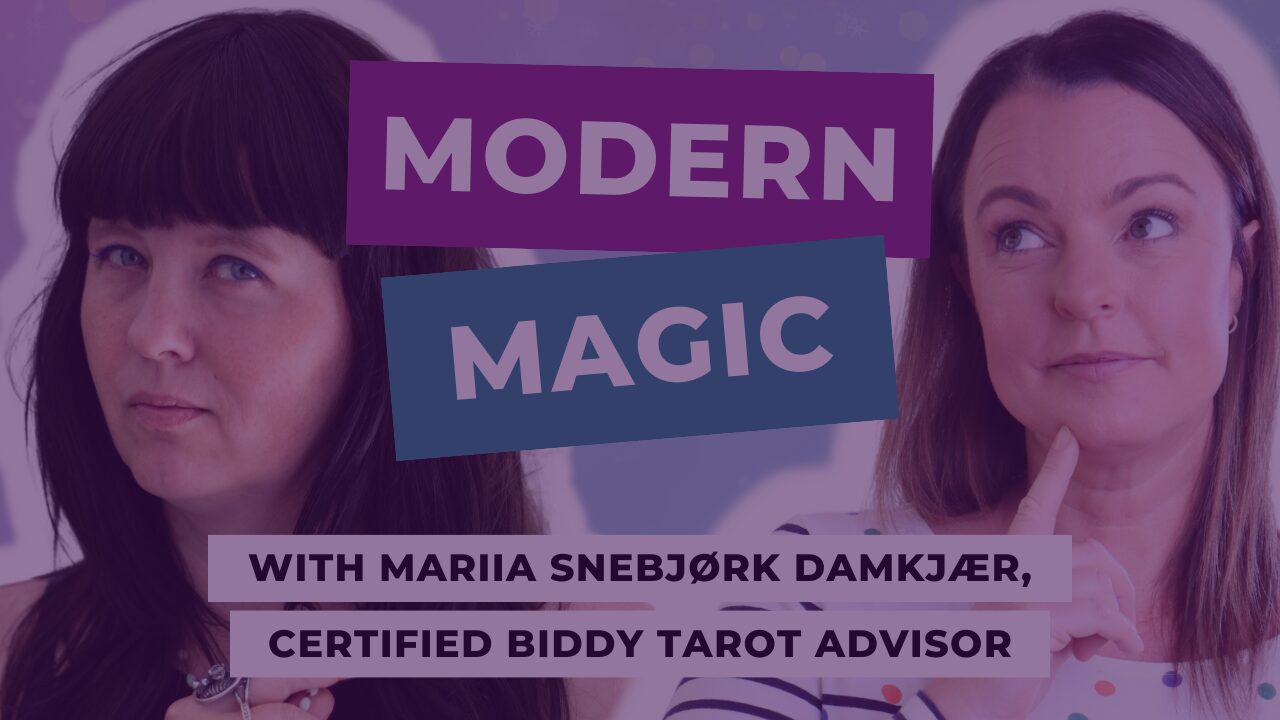
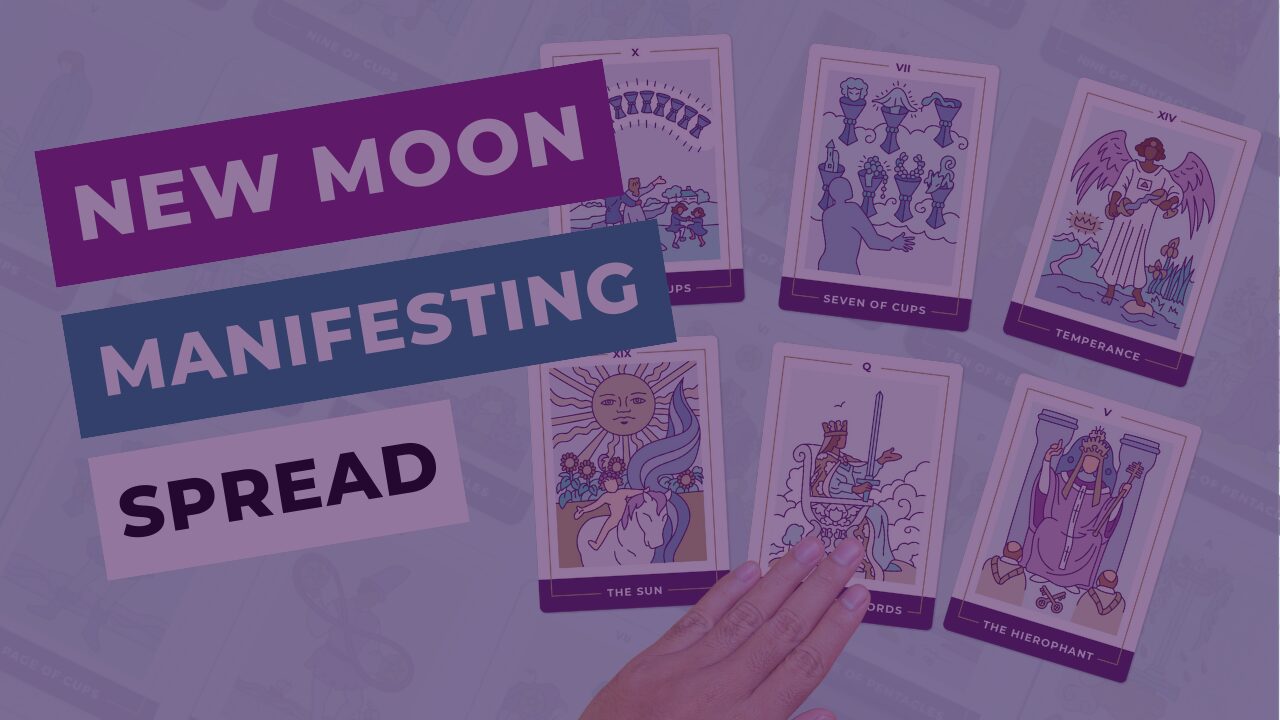
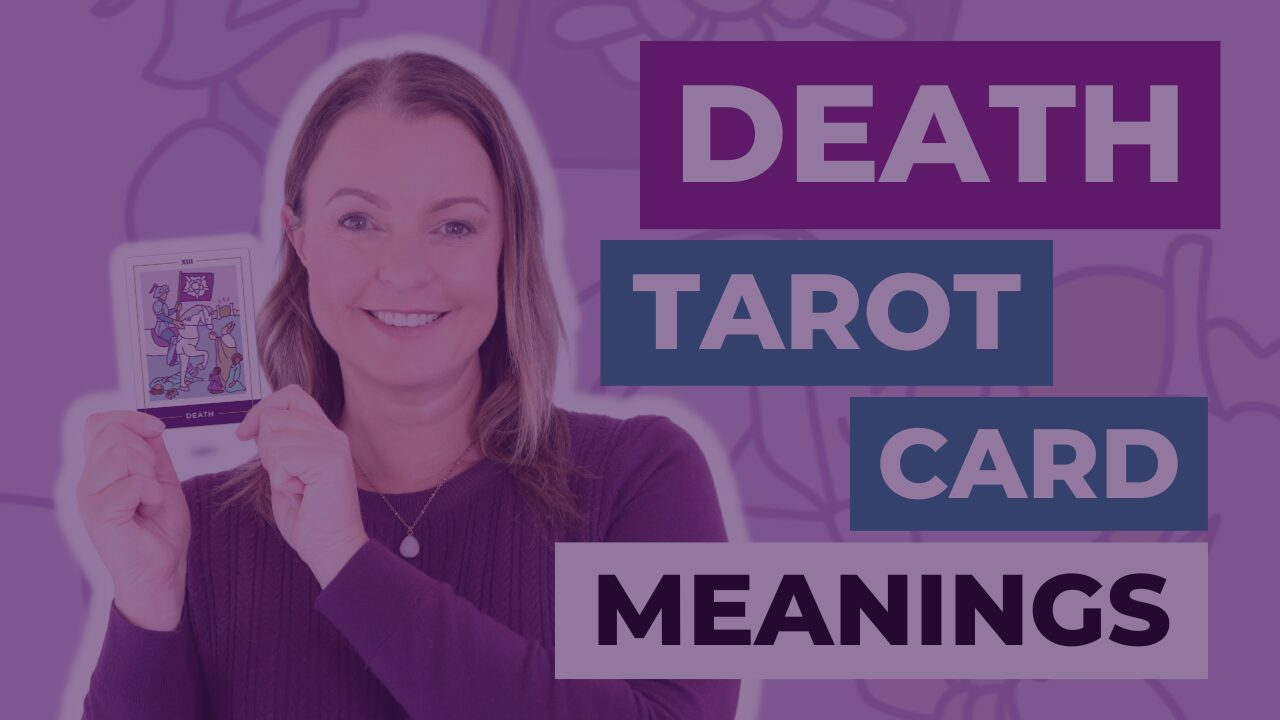
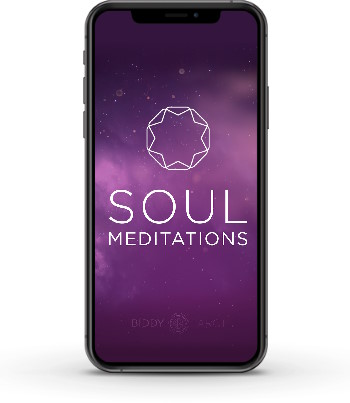 Harness the wisdom of the Major Arcana with 22 guided meditations. Here’s what you’ll get:
Harness the wisdom of the Major Arcana with 22 guided meditations. Here’s what you’ll get: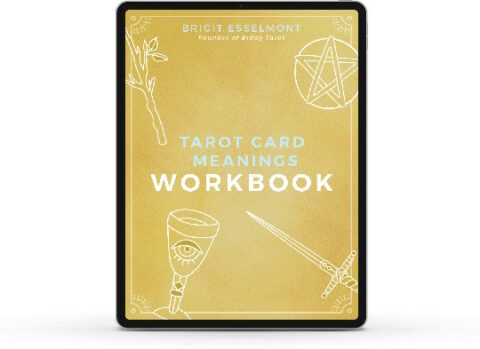 Create a deeply intuitive and personal connection to the Tarot cards with your very own Tarot Card Meanings Workbook. Here’s what you’ll find inside the workbook:
Create a deeply intuitive and personal connection to the Tarot cards with your very own Tarot Card Meanings Workbook. Here’s what you’ll find inside the workbook: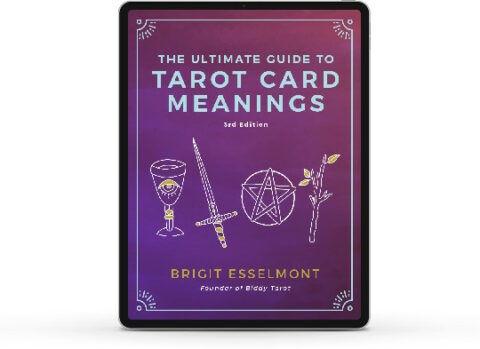 Here’s what you’ll find inside for every card in the deck:
Here’s what you’ll find inside for every card in the deck: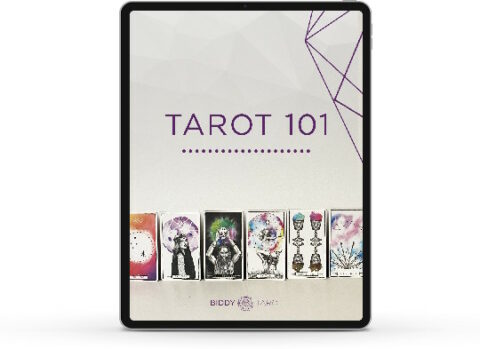 Start doing deep, accurate readings TODAY with this step-by-step accelerated program for beginners.
Start doing deep, accurate readings TODAY with this step-by-step accelerated program for beginners.